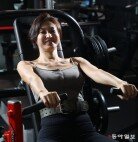Terms of Trade Continue to Decline
○ Terms of Trade Decline for the 12th Consecutive Year
The Bank of Korea released its Trade Index and Terms of Trade in 2007, yesterday. The data showed Koreas net terms of trade index for goods (base year = 2000) declined 4.1 percent from 2006 (73.2) to 70.2 in 2007, setting a new low since 1988.
The index refers to the volume of imported goods that can be bought with the money earned through the export of 100 products. In other words, the nation could import 100 goods with the money it earned by exporting 100 goods in 2000. However, this index has fallen to 70.2 units in 2007.
If the index declines, consumers have no choice but to buy fewer imported goods even as the amount of exports increases. In short, a fall in the index leads to an actual decline in the standard of living and household income.
The index reached its highest, 138.5 in 1995, when the nation could import 138.5 units with the money it gained by exporting 100 units.
○ Decreasing Export Price, Increasing Import Price
The drop in the index is attributed to the decoupling of export price from import price.
Prices of Koreas key exported items, which include semiconductor and thin film transistor liquid crystal display (TFT LCD), have dropped due to fierce competition over the past few years. In 2007, per unit export price of most other products increased but per unit export price for electrical and electronics goods, like semiconductors, declined as much as six percent. As a result, overall per unit export price increased a mere 1.6 percent, year on year. Of Koreas exports, electrical and electronics products accounted for 34.2 percent of total value.
On the other hand, import prices of raw materials, cereals, and machinery have risen sharply over past few years. In 2007, per unit price jumped 5.8 percent from the year before due to a surge in the price of raw materials, such as crude oil, chemicals and steel, which altogether claim 56.5 percent of the nations total imports.
○ Urgent Need to Develop Competitive Products
Heo Chan-guk, a researcher at the Korea Economic Research Institute, noted, Korea does not have an edge in price competitiveness any longer. It cannot overcome these recent difficulties unless it innovates new technologies through the product development cycle.
For instance, Korean firms have bought core parts at high prices and sold end products at moderate prices for a long time, since they have failed to rapidly develop the technologies to produce core parts for products like handsets.
Korea Institute of Finances researcher Lee Gyu-bok said, From a long-term perspective, Korea needs to nurture new economic growth drivers by pursuing progressive industries that can dominate the market.
havefun@donga.com







